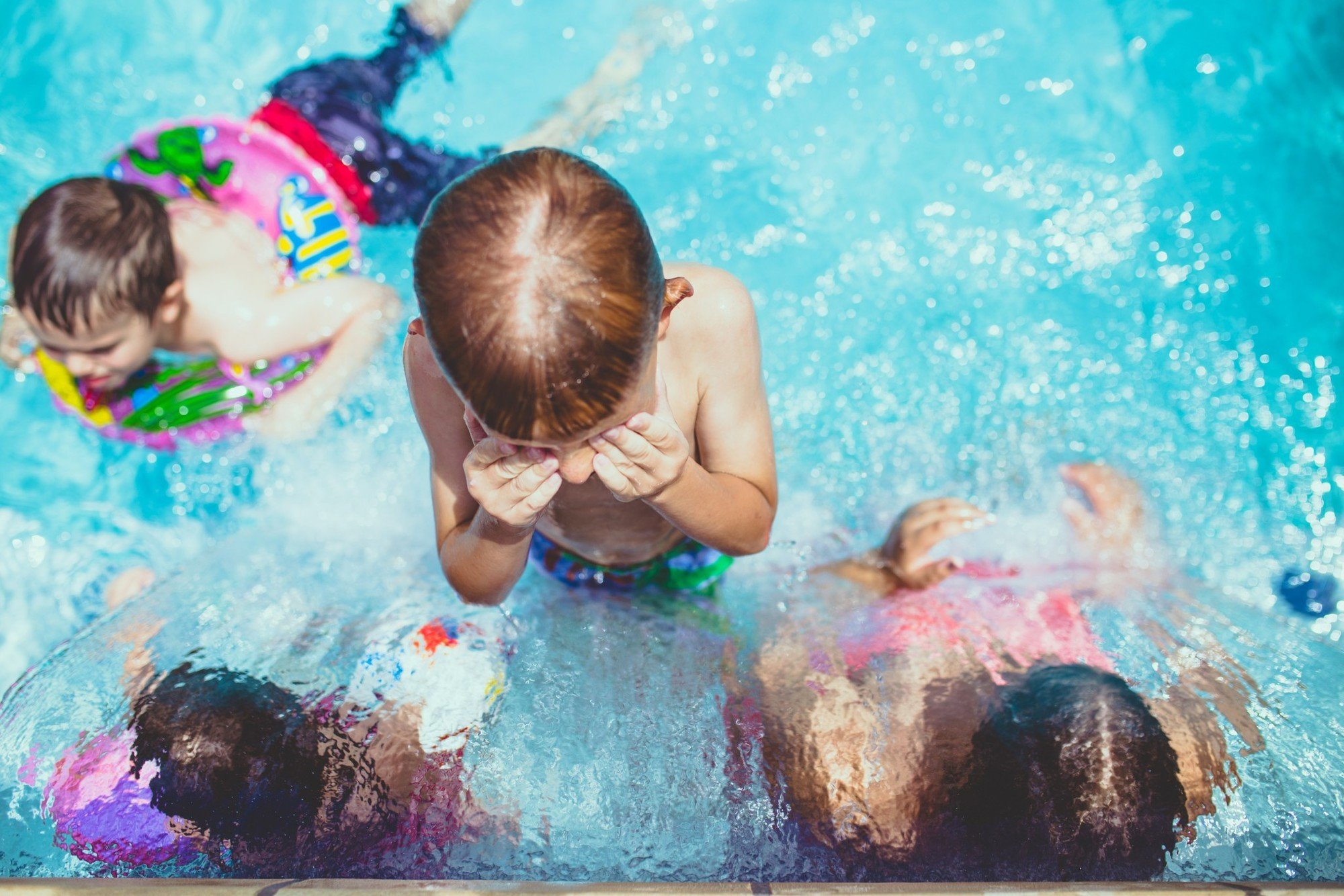
School's out, summer's here, and across the United States, millions of parents are spending their days doing the same thing right about now: trekking back and forth to the town pool with their kids. But the CDC warns that there's a new consideration to be on high-alert about: A so-called "crypto" parasite is on the rise in public swimming pools — and it can survive in the water for days.
The crypto parasite (short for cryptosporidium) is spread in water by feces and typically transmitted by accidentally ingesting it.
(And yes, it's just as gross as it sounds.)
According to a CDC report released Friday, those who contract the parasite can suffer from "profuse, watery diarrhea" for up to three weeks, and symptoms can lead to "life-threatening malnutrition and wasting in immunocompromised patients." Children and pregnant women are especially at risk, the CDC warns.
The parasite is nothing new -- but it is on the rise, the CDC reports, which is somewhat concerning.
Between 2009 and 2017, cryptosporidiosis outbreaks rose 13 percent, with 444 cases reported in 40 US states and Puerto Rico.
In total, 7,465 people fell ill as a result of the outbreaks — a third of which were contracted through recreational water sources, such as public swimming pools, kiddie pools, and waterpark playgrounds.
Still, public pools aren't the only places the "crypto" parasite has been found.
The CDC cited 22 outbreaks sparked by untreated water sources (such as lakes and other bodies of fresh water) and drinking water, as well as 57 cases linked to child care settings. Even contact with livestock (mainly cattle) was linked to the fecal parasite, and 22 cases were food borne, though they were transmitted through liquids such as unpasteurized milk and apple cider.
So far, the parasite has led to one death, though health officials are quick to point out that it was contracted in a hospital setting, not a pool.
The bottom line? This news isn't a reason to stay indoors all summer and avoid any and all bodies of water. (Phew!) But the CDC does urge parents to keep their children away from pools if they spot any signs of diarrhea at all, so as not to contaminate the water, and to shower after swimming to prevent the transmission of the parasite.
After all, chlorine may be great for killing off other harmful bacteria, but it doesn't protect against everything. In fact, cryptosporidium has a high tolerance to the chemical — so much so, that it's been known to survive in a chlorinated pool for up to seven days.
Considering the unpleasant symptoms that come with contracting the parasite, knowing the risks and ways to prevent it from spreading should help give parents some peace of mind this summer.




